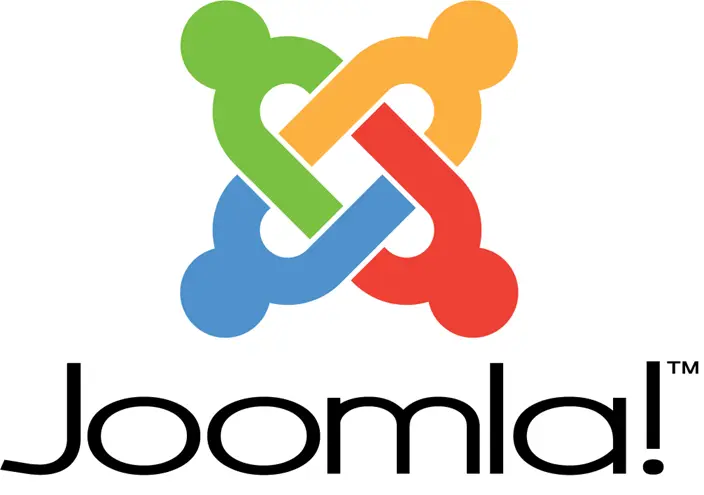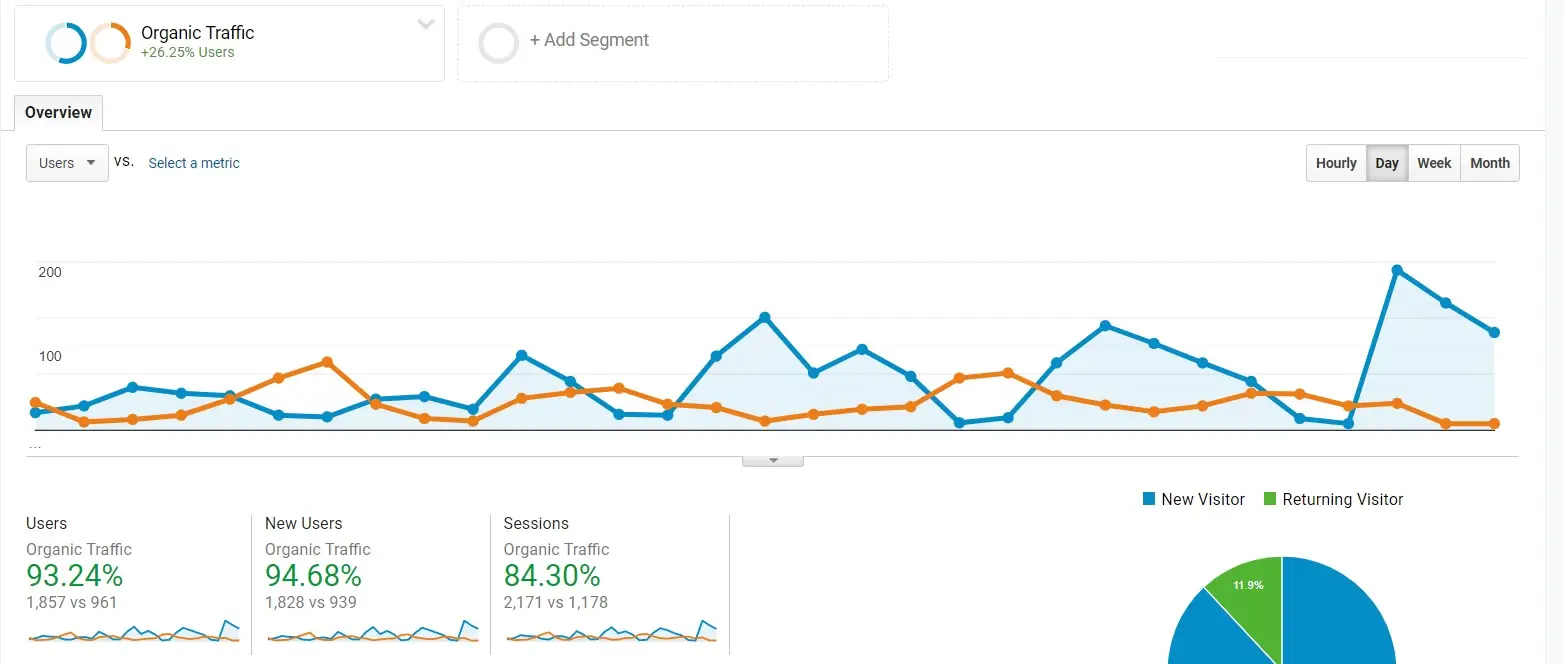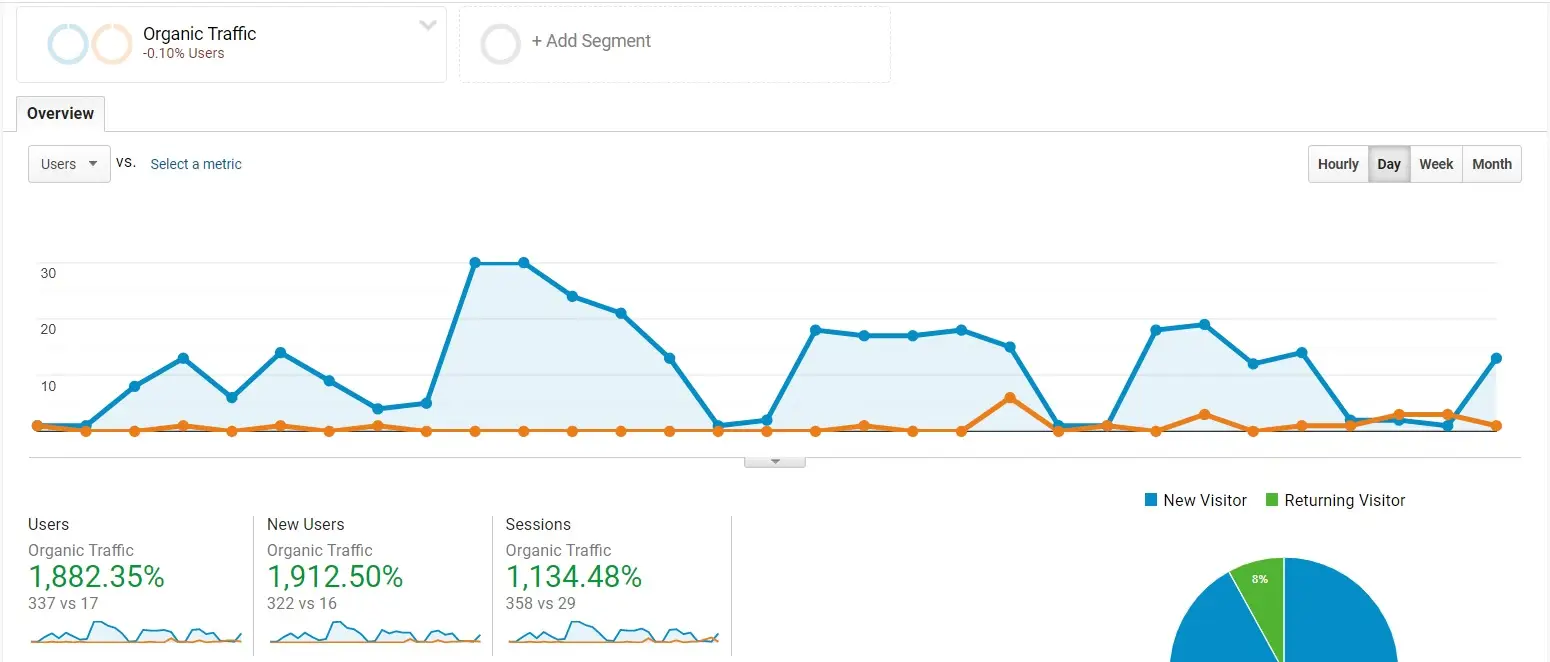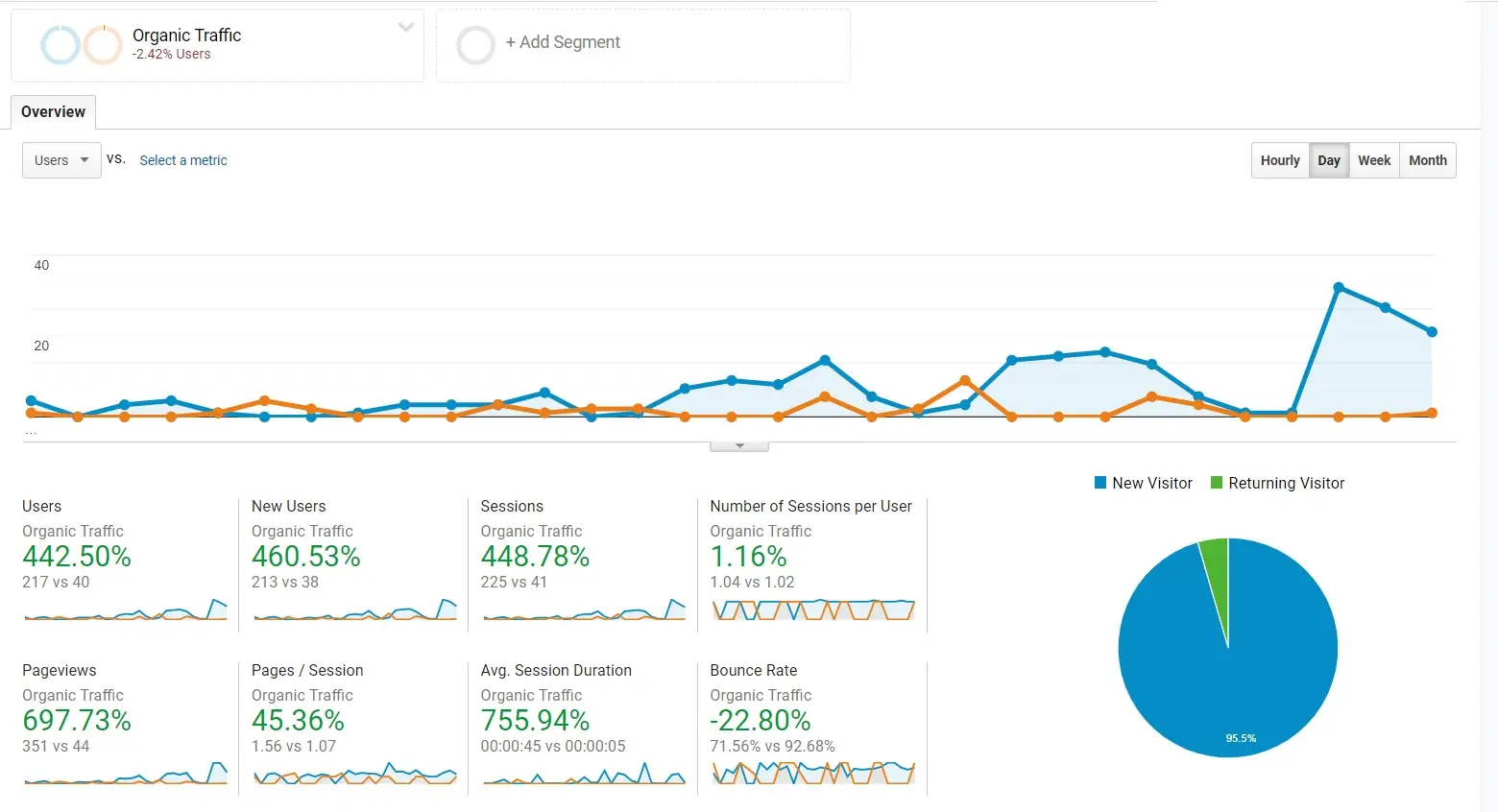Unlocking SEO Potential: Spain to Global Domination
SEO serves as a pivotal catalyst for businesses seeking to broaden their reach, especially within Spain’s dynamic market. Our meticulously crafted SEO strategies, effectively attract local as well as global consumers who are actively seeking for businesses like yours.
SEO Web Up will not only reinforce your brand’s authority but also nurture a meaningful connection with the target community. A well-executed SEO strategy has the potential to transform your website into a formidable instrument for driving targeted traffic, enhancing your credibility, and ultimately fostering sustainable growth.
Embrace the opportunity to unlock your business’s full potential by strategically targeting Spain’s most sought-after locales, where the efficacy of location-based SEO is unmatched.
Industry spotlight: Digital Triumphs and Secrets of Online Success in Spain
1. Tourism
Spain’s vibrant tourism sector is a cornerstone of its economy, attracting millions of visitors each year. To captivate potential travelers, businesses utilize SEO and PPC advertising to ensure they rank high in search results. Social media platforms like Instagram and Facebook come alive with stunning visuals of picturesque landscapes, local delicacies, and cultural experiences. Engaging stories shared by travel influencers further ignite wanderlust, providing authentic recommendations that inspire travelers to explore everything from the sun-drenched beaches of Costa del Sol to the rich history of Barcelona.
2. Food and Beverage
Spain is renowned for its culinary delights, and the food and beverage industry is leveraging online marketing to reach food lovers worldwide. E-commerce platforms allow brands to sell directly to consumers, making it easier for people to indulge in Spanish wines, olive oils, and gourmet products. Content marketing plays a vital role here, with blogs and recipe videos not only promoting products but also creating a connection with consumers. Eye-catching posts on Instagram and TikTok showcase delicious dishes, encouraging sharing and community engagement among food enthusiasts.
3. Fashion and Textiles
The fashion industry in Spain is a dynamic blend of tradition and modernity, and it thrives in the digital space. E-commerce has become a go-to for shoppers, with brands employing targeted ads and retargeting strategies to reach potential customers. Social media, particularly Instagram, serves as a runway for showcasing new collections, engaging followers with style tips and behind-the-scenes glimpses. Influencer collaborations amplify brand visibility, allowing fashion labels to tap into the followers of style icons who resonate with their aesthetic.
4. Technology and Startups
Spain’s burgeoning tech scene is characterized by innovation and creativity. Startups leverage SEO and content marketing to position themselves as thought leaders, attracting potential clients through informative blogs and engaging whitepapers. Webinars and online events provide platforms for startups to showcase their solutions and connect with a wider audience. LinkedIn is particularly effective for B2B marketing, enabling tech companies to network and forge partnerships in an increasingly competitive landscape.
5. Real Estate
The real estate market in Spain is thriving, and online marketing is pivotal in connecting buyers with their dream homes. Virtual tours and high-quality images make properties more accessible, allowing potential buyers to explore listings from the comfort of their homes. Real estate agents optimize their websites for local searches to enhance visibility, while targeted social media ads engage specific demographics, making it easier for buyers and renters to find their ideal properties in bustling cities or serene coastal areas.
6. Automotive
The automotive industry in Spain is undergoing a digital transformation, with online sales platforms gaining traction. Automotive brands use engaging video content to highlight vehicle features and customer testimonials, creating an immersive experience for potential buyers. SEO strategies are crucial for ensuring that dealerships and manufacturers remain visible when consumers are researching their next vehicle. The convenience of online shopping, coupled with targeted advertising, has made car buying more accessible and streamlined.
7. Healthcare and Pharmaceuticals
In the rapidly evolving healthcare landscape, telemedicine has emerged as a game-changer, allowing providers to offer consultations online. Healthcare organizations use targeted digital advertising to promote these services, while educational content positions them as trusted authorities in the field. Social media platforms are harnessed to engage communities, share health tips, and conduct awareness campaigns, helping to demystify health-related topics and foster a more informed public.
8. Finance and Banking
Spain’s finance and banking sector is leveraging online marketing to engage customers and drive service adoption. Digital channels, such as email marketing and social media, are utilized to promote a variety of financial products, from personal loans to investment services. Interactive tools like calculators and comparison guides attract potential clients by providing valuable resources that simplify financial decisions, enhancing user experience and trust.
9. Education
The education sector in Spain has embraced online learning, and institutions are utilizing digital marketing to attract students. SEO strategies help schools and universities rank higher in search results, while content marketing—like blogs and videos—showcase their programs and successes. Social media campaigns create interactive experiences, allowing prospective students to connect with current students and faculty. Webinars and online open days provide additional insights into courses and campus life, making education more accessible than ever.
10. Entertainment and Media
The entertainment and media industry in Spain is thriving in the digital age, with streaming services and content creators harnessing online marketing to captivate audiences. Engaging social media campaigns promote new releases, while interactive content helps build communities of fans. Collaborations with influencers allow brands to tap into new demographics, enhancing visibility and creating buzz around upcoming shows, films, or music releases.
11. Construction and Real Estate Development
The construction industry in Spain is increasingly adopting digital marketing strategies to showcase projects and attract clients. Online portfolios highlight completed works, demonstrating capabilities and fostering trust. Social media is utilized to engage with stakeholders and the community, sharing updates and milestones. SEO strategies ensure visibility in a competitive market, allowing firms to effectively reach potential clients looking for construction services or developments.
Online Marketing Mavericks: Inspiring Campaigns from Renowned Companies
1. Meliá Hotels International
Meliá Hotels International stands out in the hospitality industry by creating memorable travel experiences. Their online marketing strategy focuses on captivating social media campaigns that showcase stunning hotel locations and amenities. By partnering with travel influencers, they reach potential guests where they spend their time. Personalized email promotions also ensure that past guests feel valued and enticed to return, making Meliá a go-to choice for travelers.
2. Grupo Vips
Grupo Vips, a prominent player in Spain’s dining scene, knows how to connect with food lovers. They actively engage customers on social media with interactive posts and fun promotions, making followers feel like part of the community. Their user-friendly apps streamline online ordering, ensuring that customers can enjoy their favorite meals with ease. This blend of social interaction and convenience keeps diners coming back for more.
3. Inditex (Zara)
Inditex, home to the iconic Zara brand, is a master of fast fashion. Their robust e-commerce platform allows shoppers to browse and purchase the latest trends with just a few clicks. Zara’s use of social media marketing and influencer collaborations not only highlights new collections but also creates a buzz around their brand. By integrating online shopping with a seamless in-store experience, they ensure that fashion enthusiasts stay engaged and inspired.
4. Telefónica
As a leading telecommunications company, Telefónica understands the importance of staying connected. They utilize digital content marketing to educate consumers about their services and innovations, sharing insights through engaging blog posts and videos. Their social media presence is informative yet relatable, allowing them to build strong relationships with customers. Data analytics help them personalize marketing efforts, ensuring that the right message reaches the right audience.
5. Cabify
Cabify revolutionizes urban transportation with a user-friendly app that puts convenience at the forefront. Their marketing strategy involves targeted online ads and referral programs that encourage users to spread the word. By focusing on local SEO, Cabify attracts customers in specific cities, creating a sense of community. This approach not only grows their user base but also fosters loyalty among riders who appreciate the service.
6. SEAT
SEAT takes the automotive experience to the next level with immersive online features. Their virtual car tours and interactive advertisements engage potential buyers in exciting ways. Social media campaigns highlight new models and innovations, while customer stories create a sense of belonging among SEAT owners. By blending technology with personal storytelling, they connect with audiences emotionally.
7. Idealista
Idealista is the go-to platform for property seekers in Spain. They utilize strong SEO strategies and compelling content marketing to attract users looking for their dream homes. Targeted online ads and informative email newsletters keep potential buyers informed about new listings and market trends. By positioning themselves as a trusted resource, Idealista builds lasting relationships with its users.
8. Mango
Mango embodies style and elegance in the fashion retail space. Their vibrant e-commerce site is paired with dynamic social media advertising that showcases the latest collections. Collaborating with influencers who align with their brand helps Mango reach diverse audiences, while engaging content keeps customers inspired. This blend of digital marketing keeps their community excited about new arrivals and seasonal trends.
9. El Corte Inglés
As one of Spain’s largest department stores, El Corte Inglés offers a shopping experience that caters to everyone. Their online marketing strategy is multifaceted, featuring email campaigns that reward loyalty and targeted advertising that highlights seasonal promotions. By creating an omnichannel shopping experience, they ensure that customers can shop conveniently online or in-store, making them a household name.
10. Repsol
Repsol takes an innovative approach to energy marketing. They focus on content that informs and engages consumers about sustainability and energy efficiency. Through social media, Repsol promotes their corporate social responsibility initiatives, showcasing their commitment to a greener future. This transparency builds trust with stakeholders and positions Repsol as a leader in the energy sector.
11. Banco Santander
Banco Santander combines traditional banking with digital innovation. Their user-friendly mobile apps and personalized online services enhance the banking experience. By utilizing targeted digital advertising and educational content, they guide customers through their financial journey, whether it’s saving, investing, or obtaining loans. This approach not only attracts new customers but also fosters loyalty among existing ones.
12. Desigual
Desigual stands out with its bold, colorful fashion that tells a story. Their online marketing strategy is all about vibrant visual content and social media engagement. By focusing on community-building and authentic storytelling, Desigual connects with customers who share their love for creativity and individuality. This engaging approach makes them more than just a brand—it turns customers into brand advocates.
The SEO Map of Spain: Key Locations for Marketing Success
1. Madrid
Madrid, the capital city, serves as the financial and political heart of Spain. It is home to numerous multinational corporations and financial institutions, benefiting from a well-developed infrastructure, including extensive public transport and a central location that enhances accessibility. The AZCA business district houses many corporate headquarters and modern office spaces. Madrid’s dynamic environment is complemented by a rich cultural scene, with museums, theaters, and diverse dining options that attract both locals and international visitors.
2. Barcelona
Barcelona is renowned for its entrepreneurial spirit and innovation, making it a hub for startups and tech companies. The city’s vibrant atmosphere, characterized by unique architecture and Mediterranean lifestyle, fosters creativity and collaboration. Areas like 22@ are known as innovation districts, hosting many tech firms and coworking spaces. Barcelona’s strategic coastal location facilitates international trade and tourism, while the city’s numerous trade fairs and conferences further solidify its position as a major business center.
3. Valencia
Valencia is increasingly recognized as a growing business city, especially in agriculture, technology, and logistics. Its port is one of the busiest in Europe, enhancing trade opportunities. The city offers a favorable quality of life, blending historical architecture with modern amenities. Valencia’s innovation ecosystem is supported by several universities and research centers, fostering collaboration between businesses and academia. The annual Valencia Startup City event highlights the city’s commitment to nurturing startups and attracting investment.
4. Bilbao
Bilbao, located in the Basque Country, is an important industrial and financial center. The city’s transformation from an industrial hub to a modern metropolis is exemplified by the iconic Guggenheim Museum, which has spurred economic growth and tourism. Bilbao emphasizes innovation through investments in technology and design, with initiatives aimed at revitalizing urban spaces. The city is home to several major corporations, particularly in finance, manufacturing, and shipping, contributing to a diverse economy.
5. Seville
Seville, known for its rich cultural heritage, is also a burgeoning business city focusing on technology, renewable energy, and tourism. The city hosts various international trade fairs and conferences, particularly in agriculture and technology. Seville’s favorable climate and lifestyle attract talent, while its research institutions foster innovation. Positioned as a gateway to Latin America, Seville enhances its significance in international business and trade.
6. Malaga
Malaga is rapidly emerging as a significant business hub, especially in the fields of technology and tourism. The city’s tech park, Parque Tecnológico de Andalucía, supports numerous startups and innovative companies. With its beautiful Mediterranean climate, Malaga offers an attractive lifestyle, drawing professionals from various sectors. The city’s airport is one of the busiest in Spain, facilitating both business and leisure travel, while its port enhances trade opportunities.
7. Alicante
Alicante is known for its growing business environment, particularly in tourism, real estate, and agriculture. The city benefits from a strategic location on the Costa Blanca, making it a popular destination for both domestic and international tourists. Alicante’s business ecosystem is supported by several business incubators and accelerators, fostering innovation and entrepreneurship. The city also hosts various international trade events, promoting its industries and attracting investment.
8. Granada
Granada is gaining recognition for its focus on technology and education, largely due to the presence of the University of Granada, one of the leading universities in Spain. The city is investing in technology parks to promote innovation and attract startups. Its rich history and cultural heritage make it an appealing place for businesses in tourism and hospitality. The local government actively supports entrepreneurial initiatives, creating a conducive environment for new ventures.
9. San Sebastián
San Sebastián, known for its stunning beaches and culinary excellence, is also an important business city, especially in the fields of tourism, gastronomy, and technology. The city hosts several international conferences and events, particularly in the culinary sector. San Sebastián is home to innovative companies and startups, supported by a strong educational system and research institutions. The picturesque location enhances its appeal to both tourists and professionals, fostering a vibrant business environment.



